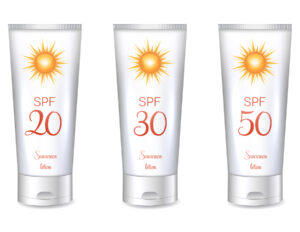What Do You Need to Know about Protecting Your Senior’s Skin from the Sun?
June is Cancer from the Sun Month, which is a month devoted to educating people about the dangers of sun damage. If your elderly family member is going to be spending some time outside, it’s important to make sure she’s protected as much as possible from sun damage.
Find and Use a Good Sunscreen

Home Care Services Meyerland, TX: Sun Protection
It’s essential to have a good sunscreen that blocks both UVA and UVB rays. Ideally, that sunscreen should have an SPF, or sun protection factor, of over 30. Apply sunscreen at least half an hour before going outside to give it a chance to soak into your senior’s skin. Reapply every couple of hours, especially if your elderly family member is sweating or in water.
Choose Lightweight Clothing that Covers Limbs
Sunscreen doesn’t have to be your senior’s only protection. Lightweight clothing that covers her arms and her legs can also serve the same purpose and help her to stay cool. Her clothing shouldn’t be tight, either, which allows for airflow to move moisture away from her skin.
Encourage Your Senior to Wear a Hat
And it doesn’t hurt for your elderly family member to wear a hat outside, either. The hat should have a wide brim that helps to protect her face. This is a good idea even if your elderly family member is wearing sunscreen on her face. But pay attention to where your senior is sitting too, because she can still get burned if she’s near water and sunlight is reflecting off the water into her face.
Choose Outdoor Time Wisely
When your elderly family member goes outside matters a lot, too. The sun is strongest when it’s highest in the sky, from about mid-morning to mid-afternoon. If your elderly family member can stagger her outdoor time so that she’s outside early in the day and in the afternoon, she’s less likely to experience a burn.
Inspect Skin Regularly
Your senior might need some help with skin issues, especially when it comes to making sure she’s aware of changes to her skin. Home care assistance can help with this as well as with making sure your elderly family member’s skin is protected when she goes outside. If senior care providers do notice changes, like a mole changing shape or color, they can help make sure her doctor is aware.
Talk to Your Senior’s Doctor about Possible Interactions
Some medications may make your senior more sensitive to the effects of the sun, and it’s important that she’s aware of that. Talk with your senior’s doctor so that you’ve got a full understanding of what possible interactions might affect your senior. It’s a lot easier for home care assistance to watch out for your senior when they’re fully aware of how the sun might affect her.
Keeping your senior safe in the sun is the best way to help protect her from sun damage and hopefully from skin cancer as well. If your aging family member does experience a burn, contact her doctor to find out the best treatment options for her.
If you or an aging loved one are considering Home Care Services in Meyerland, TX, contact the caring staff at Personal Caregiving Services at 832-564-0338. Providing Care in Houston, Bellaire, West University Place, Katy, and Sugar Land and the surrounding areas.
- Why Maintaining Flexibility Is So Important For Seniors - April 3, 2025
- Home Care Assistance Helps Seniors Manage Medical Appointments - March 19, 2025
- Symptoms and Causes of Edema in the Legs and Feet - March 5, 2025
